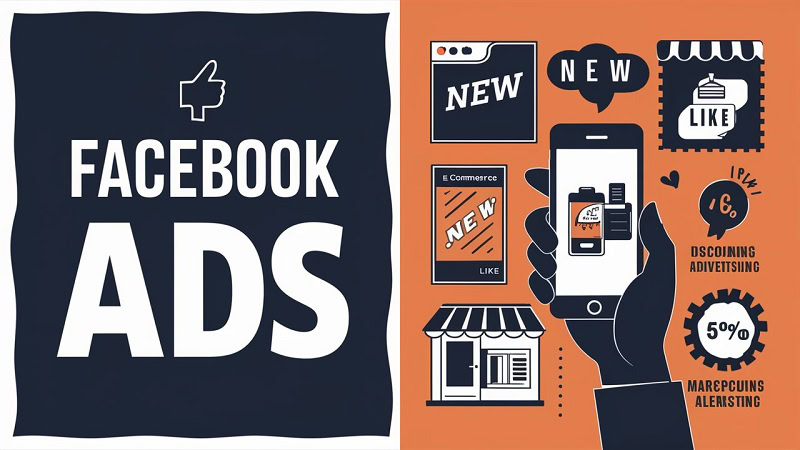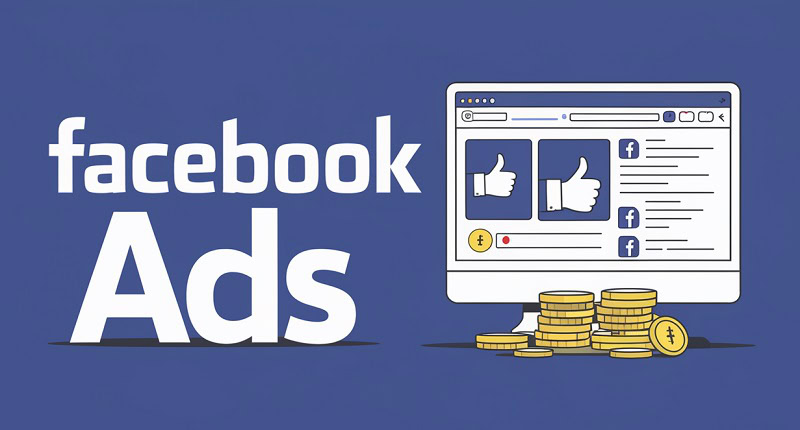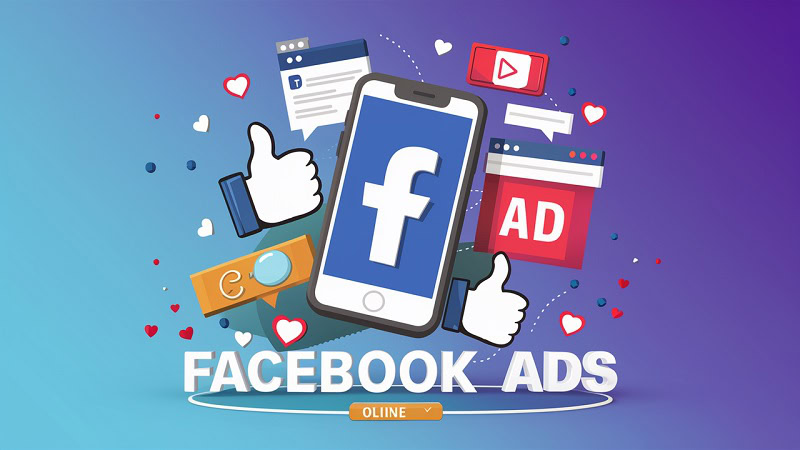
About author: Jack Evans brings his extensive experience in digital marketing to the table, specialising in paid social strategies that drive growth for e-commerce and DTC brands.
Feeling perplexed by PPC marketing?
Don’t worry. You’re not alone.
When you’re running e-commerce advertising, understanding the role of PPC is hugely important. But sometimes the jargon can be overwhelming.

Boost E-Commerce ROI: Download Our Free CPA & ROAS Calculator
We’re going to cut through the buzzwords and take you on an informative journey through the wonderful world of PPC advertising.
Buckle up. By the end of this post, you’re going to be a PPC prodigy.
As a specialist Google ads agency we can help you with your campaigns just get in touch for a free consultation.
What is PPC?
Let’s start with the basics.
PPC stands for Pay-Per-Click advertising. It’s an advertising model that means brands only pay platforms when their ad is clicked. Pretty self-explanatory, right?
PPC is often used to drive traffic from different ad platforms.
Advertisers pay for these ad clicks in the hope of driving a more valuable action on their website, like a purchase or a download.
To maintain a positive return-on-ad-spend the outcome of the click must be more valuable than the cost of the click itself.
How does Paid Search work?
There are various different types of PPC ads, but one of the most popular is Paid Search.
So how does Paid Search actually work?
Whenever you see an advert appear on a search engine results page (also known as a SERP) then a real-time auction has taken place for that spot.
Below is an example from Google, a colossus in the world of search engines.

When someone searches on a platform like Google, multiple advertisers bid to appear against keywords in real-time.
A combination of factors determines the winning bid, including the bid amount and the relevance/quality of the advert.
If an advertiser is successful in the Paid Search auction, they’ll secure the ad placement and pay for the number of clicks on the ad.
Hungry for more Paid Search knowledge? We’re impressed. Check out this post where we run through some key strategies for success.
What are the different types of PPC models?
It’s important to understand the different buying models available for PPC campaigns.
Flat Rate
The first PPC model to understand is flat rate – this means that advertisers pay a fixed fee for each click delivered.
Ad platforms and publishers will charge different PPC rates based on different variables.
For instance, the area of the website being used, or the ad format being purchased.
Bid Based
The second PPC model to cover is bid-based campaigns.
This involves advertisers placing bids on ad inventory. They may be bidding for a certain keyword or target audience, depending on the platform.
The publisher will then run automated auctions to determine which advertiser can show their ad.
The amount of money being offered for a bid will influence the outcome, but the quality and relevance of the advert is also very important.
What are the benefits of PPC advertising?
Now that we’ve covered the fundamentals of PPC advertising, let’s dig into some of the benefits associated with it.
It’s cost-effective
PPC advertising can be extremely cost-effective.
Since you’re only paying for a successful click, no wasted impressions are being delivered.
You just need to ensure that your targeting is effective and that prospects are completing the desired action once they reach your website.
It drives impressive results
PPC ads often deliver high CTRs and conversions because they’re reaching warm prospects at a relevant point in time.
Take Paid Search, for example.
With Paid Search ads, you’re able to react to a user’s search query and instantly deliver them a tailored message. Powerful stuff.
It increases brand visibility
PPC advertising is also highly visible, providing your brand with valuable exposure to hot prospects.
In the case of Paid Search, your ads appear at the very top of the results page.
Since PPC ads are highly relevant to prospects, they’re also more likely to generate interest and capture attention.
Who should use PPC advertising?
Wondering if you should be using PPC advertising?
The answer is yes.
PPC advertising can be a game-changing tool for any e-commerce business, regardless of size and industry.
Because you’ll only pay for each click, you can be confident in the efficiency of your spend. This is particularly important for small businesses, where every penny counts.
There are no wasted impressions, you can easily manage how much you’re bidding, and you’ll be able to specify the keywords and audiences that you want to target.
An intro to Google Ads
Google Ads is the most popular PPC advertising platform in the world.
And it’s popular for a good reason.
The Google search engine handles billions of queries every single day. That’s billions of opportunities for PPC conversions.
Google Ads works on a PPC model – winning auction bids are determined by ad quality and relevance, along with the size of the bid.
To succeed with Google Ads, be sure to:
- Use keywords that are relevant and effective
- Link to a high-quality landing page that is easy to navigate for new visitors
- Maintain a high Quality Score to drive an efficient cost-per-click
If you’re keen to get started with Google Ads, check out this page for some guidance or get in touch with Upbeat – we are a highly experienced Google Ads agency.
Other types of PPC advertising
You can think of PPC as an umbrella term. Many different online advertising platforms fall into this bucket.
The following can all be run on a PPC model:
- Paid Search (e.g. Google Ads, Bing Ads)
- Display Ads
- Video Ads
- Paid Social
Remember this when creating your overarching PPC strategy. Although Paid Search will always be a core component, there are other avenues to explore.
PPC Basics – Keywords
Keywords are the lifeblood of any PPC campaign.
Advertisers select keywords to bid against. Keywords are then matched against user search queries.
You can choose different match types for your keywords. Exact matches are very precise against specific queries, while broad matches allow for phrasing variations.
It’s also possible to utilise negative keywords that prevent your ads from appearing against certain terms.
PPC Basics – Ads
Your ads are another important element of your campaigns.
PPC text ads are usually composed of headlines, descriptions, a Call To Action and a destination URL.

PPC ads are fairly basic, but that doesn’t mean you can neglect them.
You’ll need to test different variations of your ad copy to figure out what approach drives the most conversions.
With partners like Google and Microsoft, you can also utilise Ad Extensions that allow you to expand your PPC ads and include more information for prospects.
PPC Basics – Budgets & Bids
Your budgets and bid strategies will have a huge impact on your PPC performance.
Budgets will be set at a campaign level, while bids reflect the cost of individual auctions. You’ll need to figure out the maximum bid that you’re willing to pay for an impression.
Although ad partners usually allow for a manual bidding approach, many advertisers use automated bidding strategies to make things a little easier.
Once an advertiser confirms some basic details (e.g. campaign objective, budget, bid caps) the ad platform will use an algorithm to automatically place efficient auction bids for ad space.
PPC Basics – Ad Rank
While the amount you’re bidding for PPC inventory is important, you’ll also need to run quality ads that appeal to your prospects.
Different platforms will rank ads based on different metrics, but let’s look at Google as an example. The Google Quality Score is based on:
- Expected click-through rate (CTR): the likelihood that your ad will be clicked
- Ad relevance: how closely your ad reflects the search intent
- Landing page experience: how relevant and accessible your landing page is
A strong Quality Score equals a lower CPC, which means more efficient campaigns.
A weak Quality Score means that your ads are unlikely to be served, even if you’re bidding a high amount.
PPC Basics – Targeting
Effective targeting is always important in digital marketing – and PPC is no exception.
The first thing to sharpen up is your keyword strategy. Choosing the right keywords to target is what allows you to find relevant and engaged prospects who are more likely to convert.
However, there are also different ways to target users:
- Device targeting
- Demographic targeting
- Location targeting
- Day/time targeting
It’s useful to explore these additional targeting options to optimise your campaigns.
You can test copy variations based on these different segments (e.g. tailoring your copy based on the time of day) and uncover useful insights to improve performance.
If you know that a certain demographic is more likely to convert, then you can also focus your bid strategy on converting these valuable users.
PPC Basics – Conversions
The end goal of any PPC campaign is to drive conversions.
A conversion could be a completed purchase, a newsletter subscription, a download or a phone call.
Whatever your desired outcome, it’s vital that you have visibility over conversion tracking – including where the conversions are coming from.
How can I keep track of PPC conversions?
Many partners have a measurement solution built into their platform.
For example, Google Ads allows you to collect conversion data by adding a tag (a snippet of code) to your website pages.
However, sometimes it’s difficult to follow the whole conversion journey.
A user may have converted through a Paid Search ad, but they might have been exposed to a Paid Social ad that encouraged the search query.
Be sure to utilise tools like Google Analytics to measure your campaign performance and track conversions by channel.
Conducting PPC keyword research
It’s no secret that keyword research can be pretty time-consuming.
However, it’s also critical to the success of your ad campaigns. So don’t neglect it. We mean it.
Keyword research is an ongoing effort because you’ll need to stay agile with your keyword lists and identify new revenue opportunities.
You can use a keyword research tool to assist you, but you always need to ensure that your keyword lists are constantly updated, relevant to your industry, and inclusive of both popular and specific terms.
Running your PPC Campaigns
So, you’ve launched your first PPC campaign.
Time to put your feet up and enjoy the profits, right?
Not quite.
You’ll need to constantly monitor performance and make speedy optimisations to maximise your PPC results.
Here are a few pointers to ensure that your PPC campaign is a success:
- Expand your keywords – continuously add relevant keywords to your list to increase campaign reach and identify profitable tactics. If certain keywords aren’t converting, shut them off or add them to your negative list.
- Organise campaigns and ad groups – splitting your campaigns into smaller ad groups is time-consuming, but it’s worth the effort. It allows you to focus your copy on specific products and audiences, which will improve Quality Score and performance.
- Optimise your landing pages – make sure that your landing pages align with your targeted search queries and ad copy. You’re more likely to increase conversion rates if users land on relevant pages. Avoid generic landing pages!
Phew. We made it.
As you can see, there’s a lot of planning, strategy and optimisation behind a successful PPC campaign.
But luckily, the jaw-dropping results you can deliver make it all worthwhile. So get out there and start capitalising on the power of PPC!







